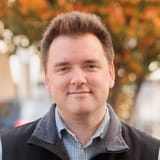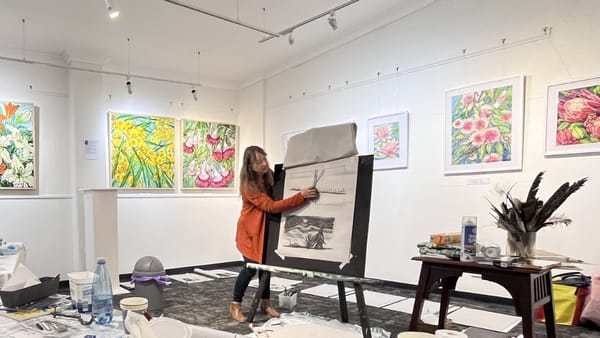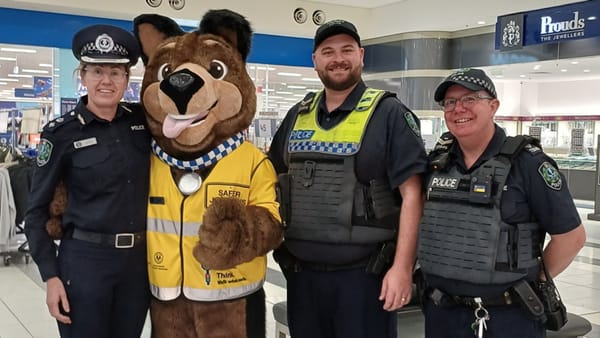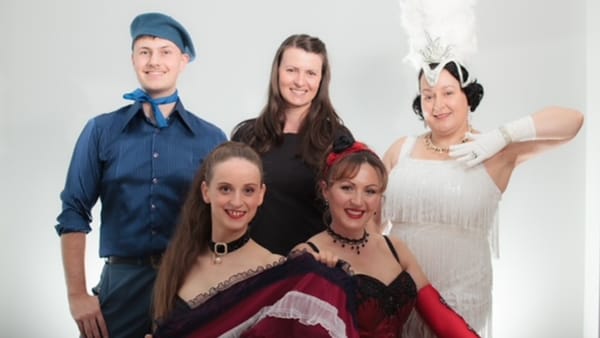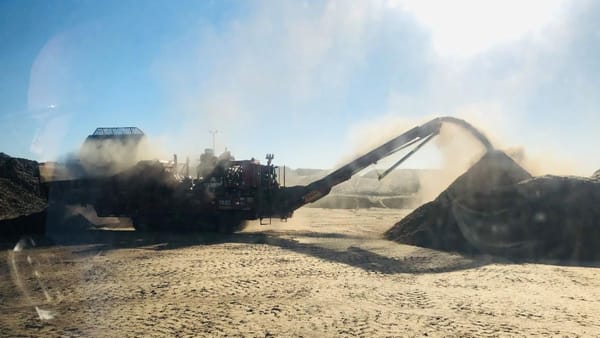Citizens’ agenda: We need more affordable housing in the Murraylands
We ask the candidates for Barker at the 2022 federal election how they would solve regional South Australia's housing crisis.

This post about the upcoming federal election is free to read. Help Murray Bridge News tell more local stories by subscribing.

There just aren’t enough houses around for low-income earners – that’s the finding of a recent survey by community agency AC Care.
There are more than 68,000 homes across the Murraylands, Riverland and South East, according to the Australian Bureau of Statistics.
But on March 19, just 55 of them were available to rent.
Worse, only a handful were priced at an affordable level for Jobseeker recipients or pensioners, according to AC Care, and none for single unemployed people.
Almost half of the properties were advertised at prices high enough to push even families with two parents working full-time into poverty.
Chief executive officer Shane Maddocks said the numbers were a wake-up call.
“The key to making housing more affordable lies in two factors: making sure everyone has a decent income and providing enough affordable rentals for the people who need them,” he said.
“We must invest in affordable housing, and the shortfall of affordable rentals in our regions must be tackled.
“Nobody should be forced to make impossible sacrifices just to keep a roof over their head.”

Citizens' agenda – federal election 2022297KB ∙ PDF fileDownloadDownload
Housing was, by far, the issue regarded by local voters as being the most important at this election in a recent survey by Murray Bridge News.
“There are families living in their cars or tents,” one respondant said.
“It is almost impossible to get a fairly priced rental,” another said.
Another said he had been left homeless multiple times over the past two years: “I (have) little to no housing options ... and it’s just getting worse”.
We put the question to the candidates for Barker.
If elected, how would you make more housing available to regional South Australians, including renters and low-income earners?

Jonathan Pietzsch (Nationals)
The growing issue with housing affordability and availability in regional SA is because of population decline that has been reversed very quickly, and a failure in preparing infrastructure in the first place, let alone being able to adapt.
An urgent increase in land supply in regional towns through changes in zoning – a state government issue – will allow for more regional housing; but in the short term, we need spending on innovative housing alternatives so that people actually have somewhere to live in the area they need to live in.
So-called “small housing” is cheap and quick to build and, when finished within the short term, can then be either relocated or used for itinerant workers when required, such as fruit pickers or those working on new infrastructure projects.
We must secure our supply chains; builders are facing massive delays at the moment due to the inability to secure raw materials.
A lack of tradespeople to undertake the required work also needs to be addressed through having trade training places in multiple regional areas to service the regions.

Carlos Quaremba (One Nation)
One Nation strongly believes that all hard-working South Australians should be able to own a home.
Owning your own home promotes freedom, family stability and economic independence.
We have a housing crisis that I believe has been brought on by a number or factors.
This is an issue of supply versus demand.
We believe in eliminating foreign ownership of residential properties as has been done in New Zealand and Canada to increase housing stocks for Australians.
We will also pursue an increase in the supply of low-cost, affordable housing.
One of the ways we will achieve this is by removing the red and green tape that contributes to substantial build prices.
We will also work to lower the immigration numbers to sustainable levels from current quotes of 200-plus to 100 people.
It is time we put the needs of all Australians first.

Vince Pannell (independent)
There are many issues here.
While I don’t have all the answers, here is a couple of them and possible solutions.
One is the amount of people who are currently homeless and require a place to stay.
Build small affordable emergency housing, one- or two-room places that have all the necessary living amenities and backed by government.
The second: the ridiculously high amount of savings required.
In just our area you need between $30,000 and $50,000 in savings before you can even think about it.
Perhaps a scheme where the government buys the house and the people have a rent-to-buy agreement.
Effectively the government becomes the bank.
The community has many brilliant people and one or more of their ideas may be the very solution required.
But first they need someone who will truly listen.

Maddy Fry (independent)
If elected I believe in removing all taxes, removal of foreign ownership of Australian land and removal of many restrictions on private land.
I would advocate for a two per cent expenditure tax, thus lowering the cost of living and increasing the wealth of all South Australians.
My aim is to put money back into the pockets of everyday Australians and push back against billionaires and money-hungry corporations who are taking away houses and lands from the everyday Aussie.
As a starting point I will advocate to prohibit “rental bidding”, which currently makes affordable rentals unaffordable; promote innovative, smaller affordable housing options; legislate a capped timeframe on repairs for SAHA properties; demand that the government provide the funds to create more physical housing options with attached support packages to support people who are cycling in and out of homelessness; prevent and stop the sale of current state housing; or ensure for every sale a new build is put in place.

Rosa Hillam (Greens)
People in Barker are struggling to find affordable, secure homes.
Homelessness is on the rise and the waiting list for public housing is growing.
Successive governments have given big banks, property developers and the real estate industry too much power, and now housing prices have gone through the roof.
The Greens have a plan to establish a Federal Housing Trust to build 1 million new, environmentally sustainable homes over the next 20 years in partnership with states, territories, local councils, community housing providers and First Nations community-controlled organisations.
Our plan would produce 45,000 new ongoing direct jobs and 90,000 new ongoing indirect jobs.
The Greens will also strength the rights of renters by ending “no-grounds” evictions and limiting the amount and frequency of rent increases.
Previous governments have done little to solve the housing crisis.
Only the Greens will fight to end inequality, so everyone has a place to live.

Tony Pasin (Liberal)
Home ownership offers security and stability for both individuals and families.
Supporting home ownership is not just good policy for the individual, it makes economic sense.
Increasing home ownership and increasing housing stock will take pressure off the rental market.
A re-elected Coalition government will:
- help more first home buyers get into the market by raising the number of low-deposit guarantees for first home buyers to 35,000 each financial year
- increase property price caps for the Home Guarantee Scheme.
- increase the supply of new homes in regional areas by incentivising the purchase of new-build homes – providing 10,000 low-deposit guarantees each financial year for those moving to, or within, regional areas
- increase the number of low-deposit guarantees for single parent families to 5000 each year.
- support greater investment into affordable housing with an additional $2 billion in low-cost financing for social and affordable dwellings; this brings total low-cost financing to $5.5 billion

David Swiggs (United Australia)
When elected, the United Australia Party will implement our policies aimed at decentralising Australia and growing, protecting and healing regional towns.
Our zonal taxation policy will reduce the taxation paid by individuals and businesses in the regions by 20 per cent.
Traditionally, "safe" Liberal seats receive very little investment from Canberra.
Our taxation policy will ensure that at least 25% of the wealth generated in Barker will be returned and reinvested in the area it was created.
We will also cap owner-occupied home loans at 3% for five years, making it possible for young Australians to buy their own homes and for home owners to save their homes from rising living and finance costs.

Mark Braes (Labor)
Murray Bridge News has sought comment from Mr Braes.

Kym Hanton (Federation)
One of our goals is to remove stamp duty for first home owners.
This will take a large portion of the savings that most home buyers have to come up with to just get into the market.
I hope to then put forward to do the same for those re-entering into the home owner market.
With growth comes employment, this will make housing more affordable; and with growth comes possible investment in the housing industry there for creating properties to be rented.
Australian investors are a priority to ensure there is adequate housing for those in the region.
We have numerous policies which relate to growth and affordability ... because if we just throw money at this instead of considering the infrastructure around the housing issues it would be a waste of the tax dollars.
We are aiming to make the great Australian dream of owning our own homes attainable and affordable at a reasonable cost.
You can help keep local stories like this one free for everyone to read. Subscribe to Murray Bridge News today and support your independent, locally owned news service, plus get access to exclusive stories you won’t find anywhere else, from just $5 a month.

